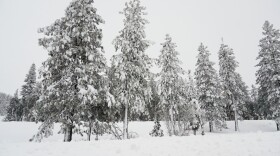“This is not normal,” said Cisco Aguilar, Nevada’s Democratic Secretary of State.
According to the letters, the Justice Department’s Civil Rights Division sent 15 questions to the Secretary of State’s office on June 25 under the pretense of the Help America Vote Act (HAVA), a federal law that sets standard election practices. The letters ask about Nevada’s election processes, how eligibility is screened, and requests the state’s voter registration list, including active and inactive voters.
On July 25, the Secretary of State’s office pointed to the various state policies and laws governing election administration, as well as publicly available voter information — names, addresses, and political affiliations.
The tone from the DOJ’s Civil Rights Division became more aggressive on August 14, when it stated that the Attorney General is demanding the complete statewide voter registration list, including the last four digits of Social Security and driver’s license numbers.
“Enforcing the Nation’s elections laws is a priority in this administration and in the Civil Rights Division. Congress gave the Justice Department authority under the [National Voter Registration Act], HAVA, the Civil Rights Act, and other statutes to ensure that states have proper voter registration procedures and programs to maintain clean voter rolls containing only eligible voters in federal elections,” a DOJ spokesperson said in a written statement to KUNR. “The recent request by the Civil Rights Division for state voter rolls is pursuant to that statutory authority, and the responsive data is being screened for ineligible voter entries.”
However, Aguilar is not convinced.
“We need more transparency from the federal government on why they’re making these requests,” he said. “We talk about transparency all the time in our elections; there's no difference in why the federal government can't be transparent in their request, what they're going to do with this data, and how they're going to secure it before we hand it over. This is voter information. These are people's lives that live in our communities.”
The August letter from the DOJ went on to state that the data received will be kept secure under the Privacy Act of 1974, which prohibits federal agencies from disclosing the information without consent, with certain exceptions.
The Secretary of State’s office replied under the DOJ’s deadline a week later, stating that submitting the last four digits of social security numbers and driver’s license numbers would expose highly sensitive and confidential information. Furthermore, it is not accessible under Nevada’s public record law. The office had not received a response from the DOJ as of September 25, the public information officer confirmed to KUNR.
In mid-September, the DOJ sued the Democratic secretaries of state from Maine and Oregon over their refusal to submit the requested information. The two state officials also raised concerns about how the data would be used. Additionally, in June, the Justice Department sued Orange County, California, alleging that the registrar of voters refused to submit records on the removal of noncitizens from the voter registration list.
‘A fishing expedition’
At a joint press conference with Aguilar, Michigan Secretary of State Jocelyn Benson, and the States United Democracy Center, election protection director Dax Goldstein called the requests a “fishing expedition,” speculating the information could be shared with the Department of Homeland Security for immigration enforcement.
“Historically, DOJ has worked hard to protect its independence from politics,” Goldstein said. “But what we're seeing now is the DOJ is taking advantage of its reputation, while at the same time using its immense power to put pressure on states, fundamentally in service of political goals.
“They don't point to any substantive reason in the state's list maintenance procedures to think there's a problem. It's also deeply concerning that it looks like the election conspiracy theories are shaping DOJ actions under the guise of legitimate federal government oversight.”
President Donald Trump and other Republican lawmakers have fueled misinformation about people without legal status voting. However, there is no evidence of widespread voter fraud by noncitizens, who face severe punishments if they do: prison sentences, fines, or deportation.
Nothing is quelling fears. Aguilar and Benson expressed concerns that the collected data could be used for voter intimidation.
“Many election officials, including me, worry that the Trump administration wants this information so that it could be used to target, harass, and intimidate individual citizens, political adversaries, and potentially deter entire communities from voting,” Benson said. “It could also be used to pressure states to remove otherwise eligible citizens from the rolls based on pernicious or suspect information. It could also be used to create a public narrative about our roles being inaccurate, even though we know that they are.”
Nevada has sued the president’s administration twice this year over election procedures, claiming Trump’s executive orders requiring proof of citizenship to vote and ending voting by mail are federal oversight.







